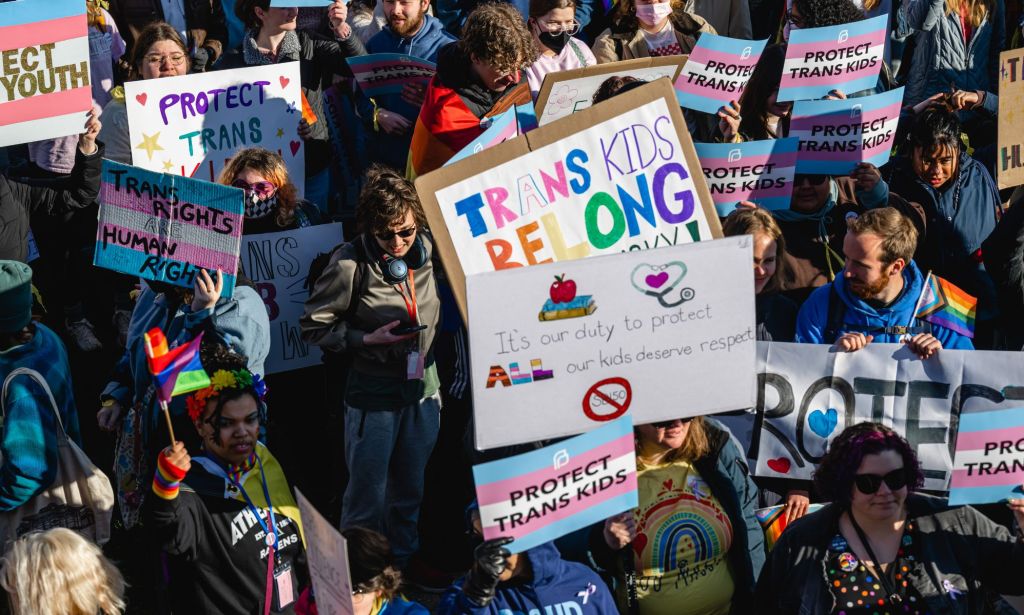Tennessee & Kentucky bans on gender-affirming care for minors upheld by appeals court

Bans on gender-affirming care for minors have just been upheld in two states. (Getty)
Both Tennessee and Kentucky have been given the go-ahead by a federal appeals court to outlaw gender-affirming care for minors.
Earlier in 2023, both states passed legislation to restrict a number of rights for transgender youth, including access to gender-affirming care.
Both were challenged in court by the families of transgender children in each state and the American Civil Liberties Union, who had argued that bans on gender-affirming care discriminated on the basis of sex.
Trial court judges initially blocked both the Tennessee and Kentucky ban, but the 6th Circuit court ruled in July that Tennessee’s ban would be permitted to take effect while it considered the state’s appeal.

On Thursday (28 September), the 6th US Circuit Court of Appeals voted 2-1 to honour both states’ appeals, allowing the restrictive bans to go ahead, Reuters reports.
In both states, these bans will prohibit medical providers from treating transgender minors with gender-affirming care, including puberty blockers, hormones and, in rare cases, surgery.
Gender-affirming care for minors has been backed by all major medical associations, including the American Medical Association (AMA) which reaffirmed this summer that they “unequivocally support the health and welfare of people who identify as LGBTQ+, which includes trans and gender diverse people seeking and undergoing gender-affirming care.”
Such treatment can often be life-saving for people suffering from gender dysphoria, and young people will be put at serious risk by having their access blocked.
Despite the overwhelming evidence in favour of gender-affirming care for minors, Chief Judge Jeffrey Sutton wrote in his ruling: “This is a relatively new diagnosis with ever-shifting approaches to care over the last decade or two.
“Under these circumstances, it is difficult for anyone to be sure about predicting the long-term consequences of abandoning age limits of any sort for these treatments.”

Judge Sutton was joined by Judge Amul Thapar in his vote to allow the bans to go ahead.
In opposition was Judge Helene White, who had argued that neither Tennessee nor Kentucky should pass “constitutional muster” or “intrude on the well-established province of parents to make medical decisions for their minor children.”
Commenting on the ruling, the ACLU of Tennessee said: “This is a devastating result for transgender youth and their families in Tennessee and across the region.”
“Denying transgender youth equality before the law and needlessly withholding the necessary medical care their families and their doctors know is right for them has caused and will continue to cause serious harm. “
Meanwhile, the ACLU of Kentucky said in a separate statement: “Today’s decision is heartbreaking for trans youth across the state. It ignores evidence from medical experts & the trial court who agree that this care is necessary, effective, appropriate, & banning it undermines parents’ right to direct the upbringing of their children.”
“No one should have to decide between their health care and their home.”
Both ACLU chapters pledged to take further action in defence of their clients and the rights of all transgender people in their respective states.

